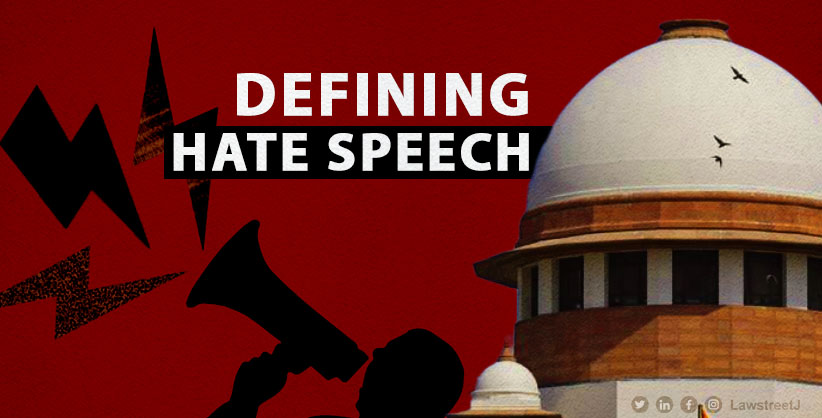NEW DELHI: The Supreme Court Friday emphasised at finding a solution to the issue of "hate speech" through collective efforts as its definition is complex and may traverse into area of free speech.
It said though there are verdicts of the apex court, the main problem is implementation and execution.
The court was hearing a plea by Shaheed Abdullah, a journalist from Kerala against the rallies organised by Vishva Hindu Parishad and Bajrang Dal in Delhi-NCR region protest against a large scale violence and arson reported from Muslim dominated Nuh in Haryana.
A bench of Justices Sanjiv Khanna and S V N Bhatti asked the parties whether the events were peaceful.
Senior advocate Chander Uday Singh for Abdullah, said no violence was reported, however some hate speeches were made at the rallies.
The bench told Singh that the definition of hate speech is fairly complex and it has to be ensured that it does not transverse into the area of free speech.
The bench asked parties to sit together to find a solution and explore the possibility of finding a solution to hate speech through collective efforts.
Appearing for the Centre, Solicitor General Tushar Mehta said that in 2018, the apex court had specified what is hate speech in Tehseen Poonawalla case. He said that no one can justify hate speech against any community.
Mehta said he has also received some video clips of hate speeches and the petitioner should be directed to amend his petition because he is selectively targeting only one community.
The bench referred to the judgement in the Amish Devgan case, which deals with balancing of competing interests of free speech and the need to prevent the spread of hatred and communal disharmony.
"You see the main problem is implementation and execution, the bench said.
Mehta said a new practice has emerged where people move court citing apprehension about the possibility of hate speeches being made at an event and seek advance order from the court.
The bench said social tension is in nobodys interest and everyone will have to find a solution as there has to be some way to deal with hate speeches.
The court also said that everybody should not be coming to court and there should be some mechanism.
"We have thought of something and we will let you all know, the bench said before adjourning the matter for two weeks.
On August 2, 2023, taking the plea by Abdullah, the bench had directed the authorities to comply with the orders issued on October 21, 2022 and January 13, 2023 to act suo motu on any hate speech.
"We hope and trust that the State Governments and police will ensure that no hate speeches irrespective of the identity are made against any community and there is no physical violence or damage to the properties. Wherever required, adequate police force or para-military force would be deployed. Further, the authorities including the police will use CCTV cameras installed or record/make video recording in all sensitive areas. The CCTV footage and the video recording will be preserved," the court had said.














